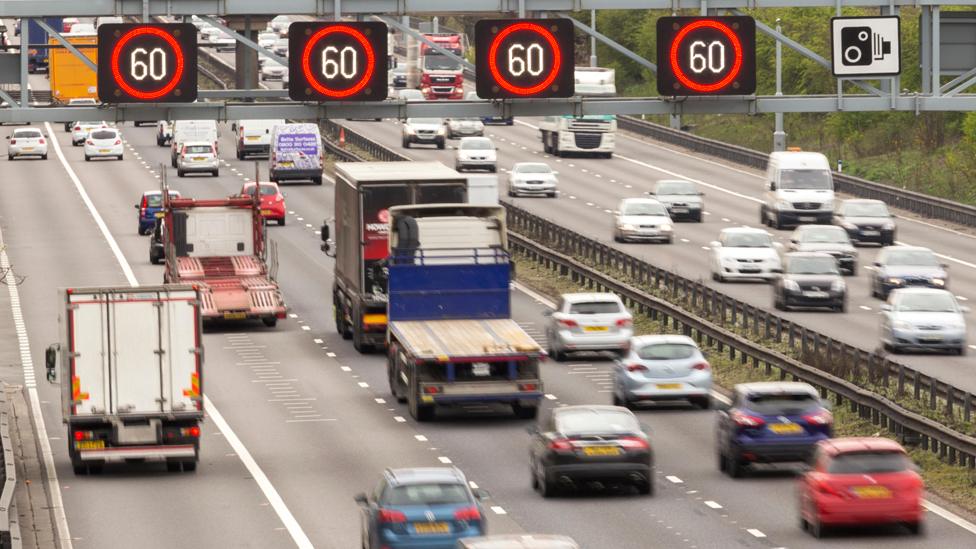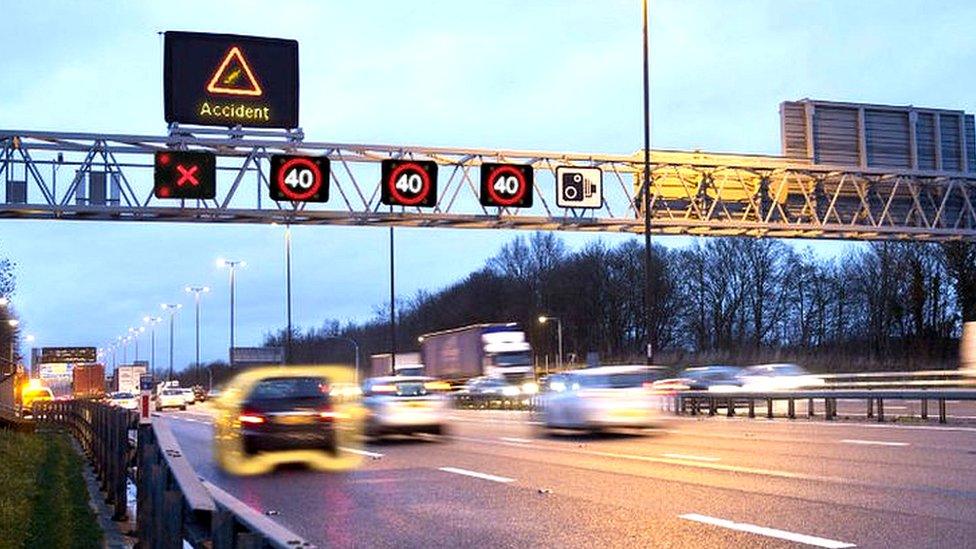Smart motorway changes after M1 double fatal crash
- Published

Warning signs will now be turned on by operators before traffic is slowed, the inquest heard
A crash which killed two men during a rolling road block on the M1 has led to national smart motorway changes, an inquest has heard.
Jack Steer, 52, and Harris Gondwe, 38, died in the collision, near Kimberley in Nottinghamshire on 20 January.
Shortly after a rolling road block was enforced, Mr Steer and Mr Gondwe hit the back of a braking lorry.
Warning signs will now be turned on by operators before traffic is slowed, the inquest heard.
Concluding the inquest, senior coroner Mairin Casey said the lorry had slowed as two National Highways vans reduced four lanes of traffic to 40mph (65 km/h).
Another HGV driver who witnessed the crash said he saw the lorry's lights come on as the vehicle braked.
He told the court that he did not see brake lights on either Jack Steer or Harris Gondwe's vans before the collision.
Ms Casey said both men died from multiple injuries.
However, toxicology results showed that Mr Steer had a number of painkillers in his system which may have "partly contributed" to the crash, she said.
'Entirely satisfied'
National Highways confirmed that signs over the motorway - which automatically warn drivers to slow after detecting cars driving at 40mph (65 km/h) in a number of lanes - had not switched on until shortly after the crash.
An expert said the system does not always detect a queue if there are not enough cars on the road.
The police and highways authority in Nottinghamshire have since introduced a policy which sees the signs activated at a specific location and time before a rolling road block is started.
Ms Casey said the policy had now been introduced nationally.
"The reality is that risk of collisions of this type will never be eliminated," the senior coroner said.
"At this time, I am entirely satisfied that the current procedure is the best that can be achieved to minimise risk of future deaths and I commend the National Highways for implementing the learning from this tragedy."
National Highways Head of Service Delivery for the Midlands, Colin Lowther, said: "Every single death on our roads is one too many and our thoughts remain with the families and friends of Andrew Steer and Harris Gondwe.
"We have considered whether any steps could be taken to further improve the way we work and have already made some adjustments to our working practices as the coroner acknowledged."

Follow BBC East Midlands on Facebook, external, on Twitter, external, or on Instagram, external. Send your story ideas to eastmidsnews@bbc.co.uk, external.
Related topics
- Published22 April 2024

- Published15 December 2022

- Published12 January 2022
